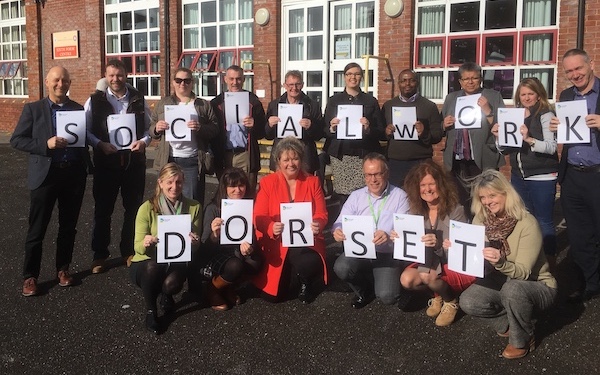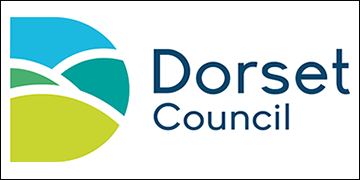This April, the council that principal social worker Steve Crocker’s spent the past 22 years at will cease to exist.
On 1 April, Dorset County Council will unite with the county’s district and borough councils to become England’s latest unitary authority: Dorset Council.
It’s a change that’s been three years in the making and it’s one that’s provided Steve and his colleagues with a rare chance to reimagine what an adult social care service should be.
“The move to unitary was a golden opportunity,” he says. “It’s given us a chance to think very clearly about what social care is and what it can do for our residents.”
An untypical transformation
But this is not the usual service redesign. From the off, Dorset decided that this change must be driven by the social care experts – the social workers, occupational therapists and other adult social care staff.
To make this happen 40 ‘service champions’ have been recruited from every part of the service, from frontline social workers to commissioners, to redesign the service.
“By having people from all aspects of the service we can look at people’s experiences of the service through all the different lenses and use their expert knowledge to look at what works best for the adults our service helps,” says Jon Goodwin, head of service operations at Dorset.
“It’s quite a different way to transform services as most often these things are done with a very top-down approach,” he says. “The champions model is one where the changes are very much driven by staff and the public.”
Strengths-based approach
Linzi Gow, a specialist manager in the service, agrees the approach is a departure: “It’s about recognising our practitioners’ professional judgment. That’s what we’ve been trained to do as social workers – to be evidenced based and to make informed decisions.”
Linzi likens the ethos to the practice approach the service uses in its work with Dorset residents. “We mirror our strengths-based approach with our staff,” she says.
“With our learning and development offer we seek to promote staff’s confidence and competence rather than focusing on what they can’t do.
“That includes opportunities like giving people time out to attend reflective learning groups and the annual Mental Capacity Act conference we run that draws hundreds of delegates from across the country.”
‘Never felt trapped’
It’s an approach to development that both Linzi and Steve have first-hand experience of. When they first joined Dorset’s adult social care service they weren’t social workers.
“Yeah, we’re home grown,” says Steve. “We both started in unqualified positions and worked our way up. Dorset’s a council that’s really supported me in my career aspirations.
“I’ve been able to train as a social worker, as a practice educator and become an AMHP, or approved social worker as it was known back then. Being at Dorset enabled me to do all those things. I’ve also been able to move around the county and try different roles. I’ve never once felt constrained or trapped here.”
And having experienced the value of those opportunities first hand, both Steve and Linzi are keen that the next generation of Dorset social workers get the same.
“Because that career progression happened to us we know the value of that,” says Linzi. “We want others to have the same support we got.”
Jon’s had a different journey. “I’ve only been here for the last year,” he says. “However, I have been so impressed by the welcome I have received from everyone. Dorset is a place of dynamic and forward-thinking staff who are really keen to support the development of the service offer to the public.
“It’s definitely a place where we want to share the great stories of the work we are doing to the rest of the country. We really are making a real difference in people’s lives.”
Driven by social workers
Another way Dorset empowers its adult social care workforce is through the practice forums that it’s introduced over the past year.
“We changed how decision making worked,” says Steve. “Previously, it was done by a very formalised quality assurance panel processes and practitioners found it deskilling.
“So, we created these practice forums that are very much practitioner-led to support creative ideas for getting really good outcomes for people.
“I think that’s really important. At the moment it seems like so many other places are stripping away practitioners’ ability to make decisions and creating these much more adversarial environments which are really deskilling.
“We don’t want that. We want to support practitioners to be in the driving seat.”
‘The goodwill’s still here’
The benefits of empowering adult social care workers are already showing, says Linzi.
“People are being much more creative now,” she says. “We’re currently looking at the way day services are delivered, and the workers involved in that project are moving away from that traditional place-based approach to one that’s much more personalised.
“We’re harnessing what’s out there in the communities. In Weymouth, for example, there are opportunities to use the facilities built for the Olympics that were constructed with accessibility in mind.
“There really is a lot of enthusiasm and commitment in this service. The goodwill is still here – it’s not been eroded by processes that disenfranchise practitioners, like elsewhere. We still all want to make our communities better and work together to do that.
“Despite being on the Jurassic Coast, we’re not a bunch of dinosaurs.”




 Facebook
Facebook X
X LinkedIn
LinkedIn Instagram
Instagram